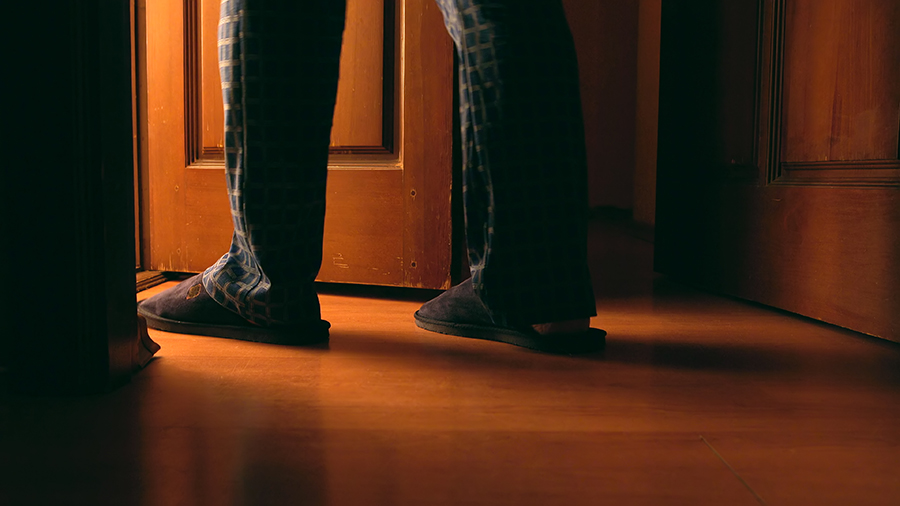
Waking At Night To Pee? You Need To Read This!
Waking overnight to wee is annoying, and can leave you feeling tired. But did you know it can also have a big effect on many other areas of your health? People who wee twice or more overnight have four times the risk of developing heart disease and double the risk of early death!1. There’s new research that gives you concrete ways to reduce those nightly trips to the loo.
Many people assume weeing overnight is a normal part of ageing, but this isn’t necessarily true. Waking overnight to wee (aka nocturia) is treatable, and new research from Royal Melbourne Hospital led by specialist Pelvic Floor Physiotherapist and researcher Dr Wendy Bower sheds light on many different things that can be done to help this annoying problem.
What Is Nocturia?
Nocturia is the issue of having to wake once or more per night to wee. Waking just once at night is considered normal and won’t usually affect your health, but it is not normal to wake twice or more to wee.
What Can Cause Nocturia?
Nocturia can be caused by six main problem categories – and often people suffer from a few different categories at once1.
- Bladder
A smaller bladder capacity, recurrent UTIs (urinary tract infections), strong bladder urges or not emptying your bladder properly, can mean your bladder will wake you more often to wee. - Kidneys
A change in the function of your kidneys will affect how much urine you produce overnight. - Hormones
In men and women, hormones can affect how much urine you produce at night. Hormonal changes in menopause, and loss of testosterone in men, can affect waking at night to wee. - Sleep
People with sleep disorders such as obstructive sleep apnoea and restless legs syndrome will wake more often at night to wee. Obstructive sleep apnoea changes your blood pressure at night, meaning your kidneys will produce more urine overnight. - Heart
High blood pressure, heart failure, being overweight, or having swelling in your legs can affect waking overnight, as these conditions will make your kidneys produce more urine. - Fluid and Food Intake
How much you drink, when you drink and what you drink will all affect how much urine your kidneys produce overnight. But did you know that excessive salt, protein and sugar in your diet, especially in the evenings, can also affect your urine production?
What Can Be Done To Help?
Nocturia is treatable – but needs a team approach to get the best results. Dr Wendy Bower and her research team at Royal Melbourne Hospital have developed a quick and easy questionnaire to help patients and health care professionals work out what is causing your nocturia. You can find the questionnaire here.
Important members of the team are a GP or Urologist, and a Pelvic Floor Physio. The GP or Urologist will assess your general health, medications, kidney function, heart health, blood pressure, sleep habits and hormones and may also refer you to other medical specialists ie. if you have a sleep disorder.
How Can A Pelvic Floor Physio Help?
Your Pelvic Floor Physio will perform a detailed assessment of your general health, bladder and bowel function, and lifestyle to work out what is causing you to wake. Some common things a Pelvic Floor Physio will suggest are:
- Bladder diary: measuring your urine output and fluid intake for 2-3 days will tell your Physio how much urine your bladder is holding, how much urine your kidneys are producing, and how much fluid you are drinking
- Education: depending on the results of your bladder diary, your Physio will recommend lifestyle changes, eg changing how much fluid you drink, changing your caffeine intake or modifying your diet
- Bladder retraining: if you have a small bladder capacity, doing bladder retraining exercises will help your bladder hold more urine overnight
- Pelvic floor exercises: if your pelvic floor muscles are too weak or too tense, this can affect how much urine your bladder can hold. Getting your pelvic floor muscles working better will help.
- Treat constipation: if you are constipated your bladder can’t hold as much urine, as a full bowel squashes your bladder. Treating constipation can help improve your bladder function.
Don’t Put Up With Nocturia
At Women’s & Men’s Health Physio, working in a team with our GP and urology colleagues, we have successfully treated many men and women with nocturia. Don’t put up with interrupted sleep! Do something about it, and look forward to better health and life expectancy, and waking up feeling fresh and well rested in the morning.
References
1 Bower, W., Everaert, K., Ong, T., Ervin, C., Norgaard, J., Whishaw, M. (2018). Questions to ask a patient with nocturia. AJGP VOL. 47, NO. 7.
February 2020




